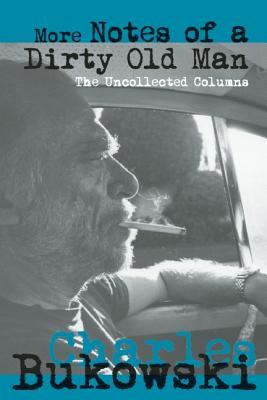
More Notes of a Dirty Old Man
The Uncollected Columns
کتاب های مرتبط
- اطلاعات
- نقد و بررسی
- دیدگاه کاربران
نقد و بررسی

August 1, 2011
Bukowski's gritty ode to unapologetic alcoholism, deviant sex, and gambling at the track picks up where his first collection of autobiographical newspaper columns left off, in 1969, with more assorted glimpses into his life as a reclusive poet. The columns are presented as vignettes or short stories that frequently switch perspectives from the obviously autobiographical Bukowski himself to several aliases (Robert, Pete, Ralph). What results is a disjointed narrative that captures an ambience of reality and coheres to a central theme of desolation and depravity with the occasional illuminating flicker of optimism. Bukowski is the hopeless writer, lost in the woods only yards from civilization, the enabler taking a gambling addict to the track, or standing by as a violent friend rapes a young girl. He is also the considerate bachelor drinking with a lonely woman, the respectful interviewee helping out a shy journalist. Proving that misanthropic and humanitarian are two sides of the same tarnished coin and that stagnation and metamorphosis are equally related, this collection arcs subtly from the banal side of addiction to the most extreme forms of love and hate. Bukowski's prose is still relevant, still shocking, still transcendent.

October 1, 2011
From 1967 to 1984, Bukowski's column "Notes of a Dirty Old Man" appeared in several underground publications, including Open City, NOLA Express, the Los Angeles Free Press, and High Times. The weekly column proved so popular that Bukowski published a selection in book form under the same title in 1969. For the present volume, Calonne (English, East Michigan Univ.; Charles Bukowski: Sunlight Here I Am) gathers together 29 previously uncollected pieces, spanning the life of the column. The essays and stories dwell on Bukowski's usual obsessions: boxing, horse racing, hard drinking, and crude sex. These diversions--as well as writing--provided some relief from a horrific childhood and a deadening job in the post office. The final piece, "My Friend the Gambler," draws on Bukowski's experience in the making of Barfly, a film that earned him a wider reputation in the United States. VERDICT Bukowski's loyal fans will relish the opportunity to peruse these writings in book form. However, readers new to Bukowski might be better directed to his major autobiographical novels, such as Post Office, Women, or Ham on Rye.--William Gargan, Brooklyn Coll. Lib., CUNY
Copyright 2011 Library Journal, LLC Used with permission.

























دیدگاه کاربران